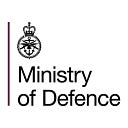Bringing Britons safely home
The Coronavirus outbreak has caused widespread lockdown with many borders being closed, leaving many from the UK stranded abroad
With authorities worldwide battling to contain the spread of the virus and many airlines suspending their flight schedule, the British government has stepped in to bring UK and EU citizens home.
There is a very high percentage of long term young backpackers who have little money to support themselves and some running out of essential medicine.
So far, the military has assisted the Foreign and Commonwealth Office (FCO) with repatriation flights from a range of countries, including China, Japan, Peru and Cuba.
The repatriation flights allowed British citizens to return home safely and receive any medical treatment they needed. This is part of the UK response to the coronavirus outbreak.
The Military has assisted the FCO’s Rapid Deployment Team by providing extra planning capacity. The deployment of an operational liaison and reconnaissance team (OLRT) has helped to bring valuable experience and military planning to help synchronise and executing a complex civilian evacuation.
Logistically these repatriation tasks are very complex. Using unique military planning skills and experience, the team deployed arrange a complex movement of British nationals from all over the country they are in, which can involve internal flights and buses all co-ordinated with the foreign government and European partners to meet the awaiting flights back to the UK.
This involves arranging and organising internal flight times to directly transfer onto the waiting aircraft, whilst ensuring that those coming by bus also arrive for the homeward flight.
Detailed planning with foreign military, police and airline companies takes place.
During these complex tasks safety is a top priority. Food and water is provided throughout if necessary.
The military team and the FCO team also ensure the safety of themselves by ensuring that they wear personal protective equipment (PPE) such as mask and gloves.
2020 marks the 75th anniversary of the end of the Second World War, and an example of RAF repatriation flights on a large scale was in 1945 — Operation EXODUS. This was the repatriation of ex-Prisoners of War from camps in Europe, with RAF bombers used to fly them home. By the end of the operation, Allied forces had brought more than 354,000 ex-prisoners home.
The Royal Air Force plays a key role in facilitating the flights landing in the UK, with various ground crew and procedures in place for when the repatriated Britons arrive.
The UK Government is doing all they can to support people and get them home. Many British Nationals were caught out by the sudden stoppage of international flights and have been stranded for a number of weeks.
